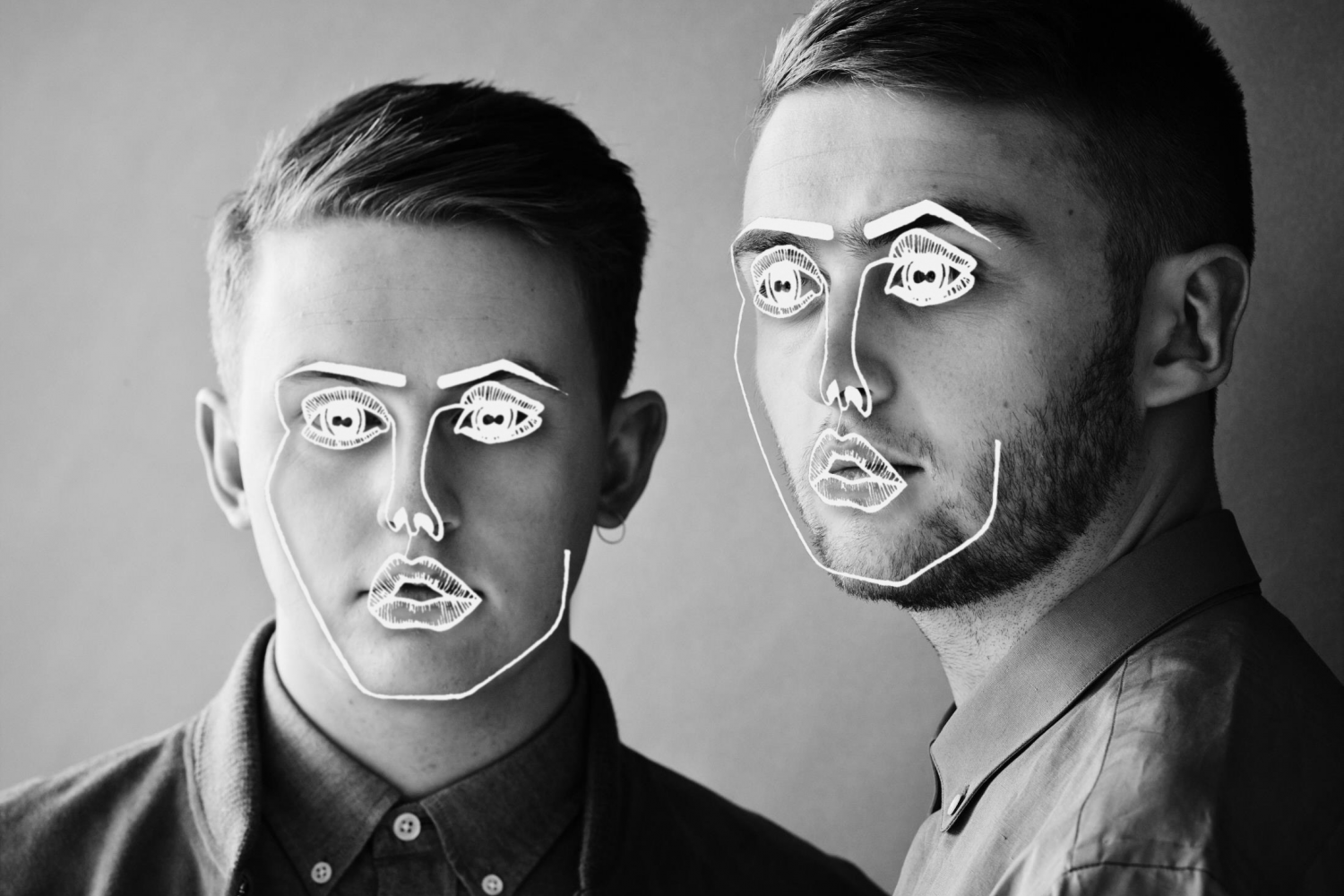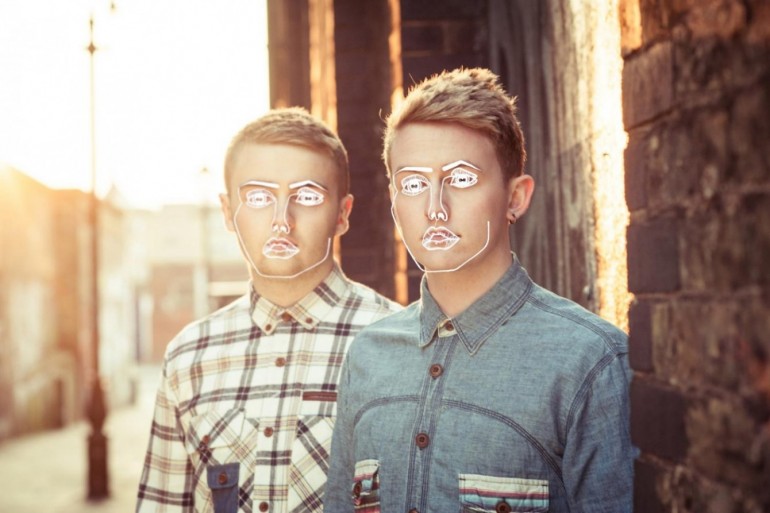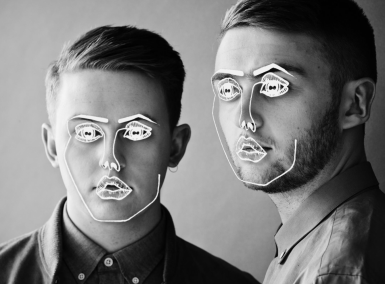
Sometimes you tend to forget that Howard Lawrence is still only 21 years old. His brother Guy is 24 which makes him barely older. One can really forget that fact since it feels like DISCLOSURE have been around for a few years now. The guys weren’t even 20 when they released their first single and when 2013’s debut album Settle came out it felt like they suddenly went from zero to hero within the blink of an eye. Songs like White Noise and Latch were all over the place and it was impossible to attend any dancefloor or party in that summer without their tunes showing up. More importantly than giving their buddy SAM SMITH the final push to launch his solo career, the British brothers went global, broke the American market and also earned a Grammy-nomination. Even R&B diva MARY J. BLIDGE knocked on the duo’s door to get some help with their last album.
The success story of DISCLOSURE is also one of the house music and Britain’s UK garage revival in general. The Lawrence brothers surely didn’t invent that sound but they were there at the right time and the right moment, helping it to break the main stream. After years of SKRILLEX-like dubstep and the over-the-top American EDM shallowness of artists like CALVIN HARRIS the world’s dancefloors were in desperate need for a change. Now, two years later, deep house is all over the place. Sometimes even to a degree that makes you wish for the next trend change to come around the corner. It’s the sound of these days and the Lawrence brothers are two of its biggest representatives. The new DISCLOSURE album Caracal arrives on September 25 and it was about time to meet them for a talk about fame, pressure and that silly limitation to specific genres.
You didn’t really take a break between the recording of the last album and the subsequent shows then the recording of this album and your upcoming tour. What has that been like?
Guy: We tried to take a break. We had a month off. I think we stopped touring last year about September, and we haven’t done any live shows until June this year. We just did DJing, so it’s not quite as draining and writing the album, it’s what we do, we write music when we relax, that’s what we do. And although music is our job and it seems like not taking time off, if I’m at home or working any old job, I would make music in my spare time… We weren’t being pushed into getting out there again; the label said ‘you can take as long as you need, you just need to write the best record you can write’. But it just started to flow… So I don’t see the break thing happening. I think we just want to get back out there. We’re young now. We can work hard. We don’t get tired too much. Sleep when you’re dead.
You guys came about at a time when UK dance music was shifting into a different direction. Do you think you had a role in that shift or do you think you happened to come about at the right time?
Guy: We’re told that we did, yeah. We didn’t set out to make that happen. I think it was a combination of good timing and the people being ready for change. I think if we had put the album out a year earlier, it might not have had such an impact. But yeah, I think we are probably part of the reason house music ended back up on the radio.
Howard: I think that I agree with. I think we maybe gave the radio stations the confidence that people really liked [house].
Guy: House and techno were starting to be played in the clubs just naturally. And that’s where we got the idea to take it and do what we did with it, with the pop stuff, and do our own thing with it as opposed to just making music for the club. So yeah, it was the underground really that shifted it, we just put it on the radio I suppose.
‘In America, if they see a guy up in a DJ booth, they just think ‘that’s EDM’
What do you view the main differences between the music scene in the UK or the American scene and how that’s changed in the last couple of years?
Howard: I think it’s doing about the same thing but it’s about two years later [in the states]. It’s happening now, I think. You’re hearing stuff like DUKE DUMONT, just basically what the UK was hearing two years ago. Whether it will stick or not, and move the way it has in the UK, has yet to be seen but I think it has a good chance of doing it if we keep putting the work in.
Guy: Yeah, for sure. I mean even CALVIN HARRIS just released a single, which is house music… well, Calvin-house anyways, and he was making huge EDM bangers like six months ago. I think EDM will still happen and exist quite heavily for a while in the US, but we can go into any club now in New York, LA or anywhere and play two hours of house music, and people love it.
I feel like you guys often get grouped with the big name DJs, like CALVIN HARRIS or AVICII…
Guy: Yeah, we do. In America, we’re known as EDM, which is technically right – Electronic Dance Music. But for me, EDM sort of brackets those guys – TIESTO, AVICII, that kind of big sound. We just don’t sound like that. But people can group us with whoever they want. I think in America, if they see a guy up in a DJ booth, they just think ‘that’s EDM’. Doesn’t matter what you’re playing.
So about your new album…what sound were you going for and how is it different from your first album?
Howard: We didn’t set out for anything at the start…We almost immediately realized that we were enjoying writing songs with vocals much more than we were enjoying writing the instrumental stuff. So every song has vocals on this record. Like I said, we didn’t really want to keep to house music specifically. There’s still lots of house music on there… But we wanted to show that that’s not just what we do. There’s a lot of R&B on it, there’s a lot of jazz influences on it. That’s a huge part of our musical lives. We only discovered house music like six years ago. Before that, all we listened to was funk and soul and pop, and that’s a huge part of what we want to do with DISCLOSURE. We couldn’t just make another house record cause we would be ignoring our entire childhood of listening to amazing music.

Although you came to popularity so quickly and when you were still pretty young, do you view there to be any issues with the music industry and the way it’s run today?
Howard: I think it’s incredibly fast changing at the moment with things like Spotify and Apple Music and streaming services in general. And I think everyone doesn’t really know what’s going to happen, no matter who you are. I don’t think anyone knows.
Guy: The main issue with the industry is the way that streaming is taking over, cause the labels are cashing in but the artists aren’t. And the argument is that the artists don’t need to cause they’re making money anyways from shows.
Howard: It’s all just very confusing, and I don’t feel like anyone is really on top of it. I don’t feel like anyone really knows what to do or what is going to happen.
Guy: So much piracy. It’s such a dated industry…Music is easy to get your hands on.
Do you think there is any way to fix that?
Howard: I think streaming will fix that cause the people won’t need to download it anymore.
Guy: But then they need to start paying artists. Latch has got like 200 million views on YouTube now and last year, I think we got 5 cents for that. Someone’s getting paid but I don’t know who. But it doesn’t matter. It’s not about money for us. We’re not on a crusade to change it like some people are. We are happy for people to hear it. We’re just in this because we love music. We’re not in it for the fame or the money. We make enough money off shows and DJing and radio play.
Howard: I feel like if we were in a position of real power, someone like TAYLOR SWIFT or COLDPLAY or RADIOHEAD.
‘We’re still relatively unknown in a lot of places’
…I think you are though.
Guy: Not in the same way. If we took our music off Spotify, they’d just be like ‘okay’. And if TAYLOR takes hers off Spotify, they’re like, ‘fuck’.
Howard: I think if we were in a position like those world-dominating acts, maybe we would have to take more of a stance on it. But I think for now, we just want as many people to hear the music as possible cause we’re still relatively unknown in a lot of places, so we just want the music out there. Honestly, even if you’re at our stage, you still don’t have the power to change it. You literally have to be TAYLOR SWIFT… The Queen of the World.
Guy: There are quite a few, but we’re not one of them.
So what are you listening to lately?
Howard: I’m listening to loads of jazz and Brazilian jazz. I find that when we’re writing music, I like to listen to stuff that’s completely different from what we’re making. I get inspired by the weirdest music all the time. But you can bring that into what you do. That’s how it works for us anyways. I think if I listened to nothing but house music while we made this record, we would have made a house record again, and I didn’t really want to do that. We wanted to make something a bit different.
What does Hope and Passion mean to you? Howard, you get Hope. Guy, you get Passion.
Howard: I think hope is a lifeline. No matter what bad situation you are in, it’s like your get out of jail card, cause you can always have it. In any bad situation, there’s always some sort of hope that can make everything feel a bit better, even if it doesn’t actually make it better.
Guy: Do I look passionate? Uhh… Passion fruit. Solid. Done. Has passion fruit been used before?
—
